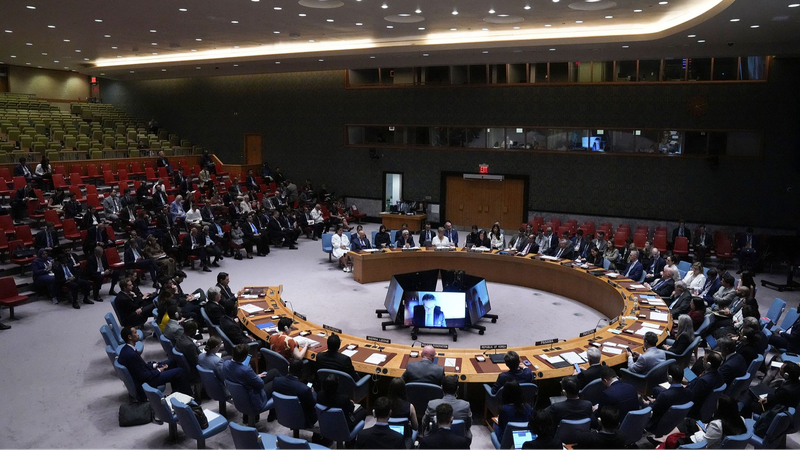On Sunday, the UN Security Council convened to address U.S. strikes on Iran's nuclear sites, marking the biggest Western military action against the Islamic Republic since its 1979 revolution. Russia, the Chinese mainland and Pakistan tabled a draft resolution calling for an immediate, unconditional ceasefire in the Middle East.
U.N. Secretary-General Antonio Guterres warned that "the bombing of Iranian nuclear facilities by the United States marks a perilous turn. We must act – immediately and decisively – to halt the fighting and return to serious, sustained negotiations on the Iran nuclear program."
Fu Cong, the permanent representative of the Chinese mainland to the UN, condemned the strikes as a serious breach of the UN Charter and international law. "China is deeply concerned about the risk of the situation getting out of control. Parties to the conflict should immediately cease fire to prevent escalation," he said.
Russia's permanent representative, Vassily Nebenzia, criticized U.S. justifications by recalling the 2003 claim that Saddam Hussein posed an imminent threat. "Again we're asked to believe fairy tales to justify suffering millions," he said, underlining Moscow's skepticism of U.S. motives.
Acting U.S. Representative Dorothy Shea argued the time had come for decisive action. Iran's envoy, Amir Saeid Iravani, accused the U.S. and Israel of manipulating the nuclear non-proliferation treaty as a "political weapon" against Iran's right to peaceful nuclear energy.
Israel's UN envoy, Danny Danon, praised the strikes as "the last line of defense" after other measures failed, accusing Iran of using talks to buy time for missile development.
France's envoy, Jerome Bonnafont, urged a return to diplomacy as the only path to a lasting settlement, and the UK's Barbara Woodward warned that further conflict risks regional and global stability.
The proposed resolution needs at least nine votes in favor and no veto from any of the five permanent members to pass. Council members have until Monday evening to submit comments, setting the stage for a critical vote that could shape the Middle East's next chapter.
As tensions mount, young global citizens and business leaders alike are watching how this high-stakes debate could influence markets, regional security, sustainable development and the future of international diplomacy.
Reference(s):
UN Security Council meets on Iran as China, Russia push for ceasefire
cgtn.com



